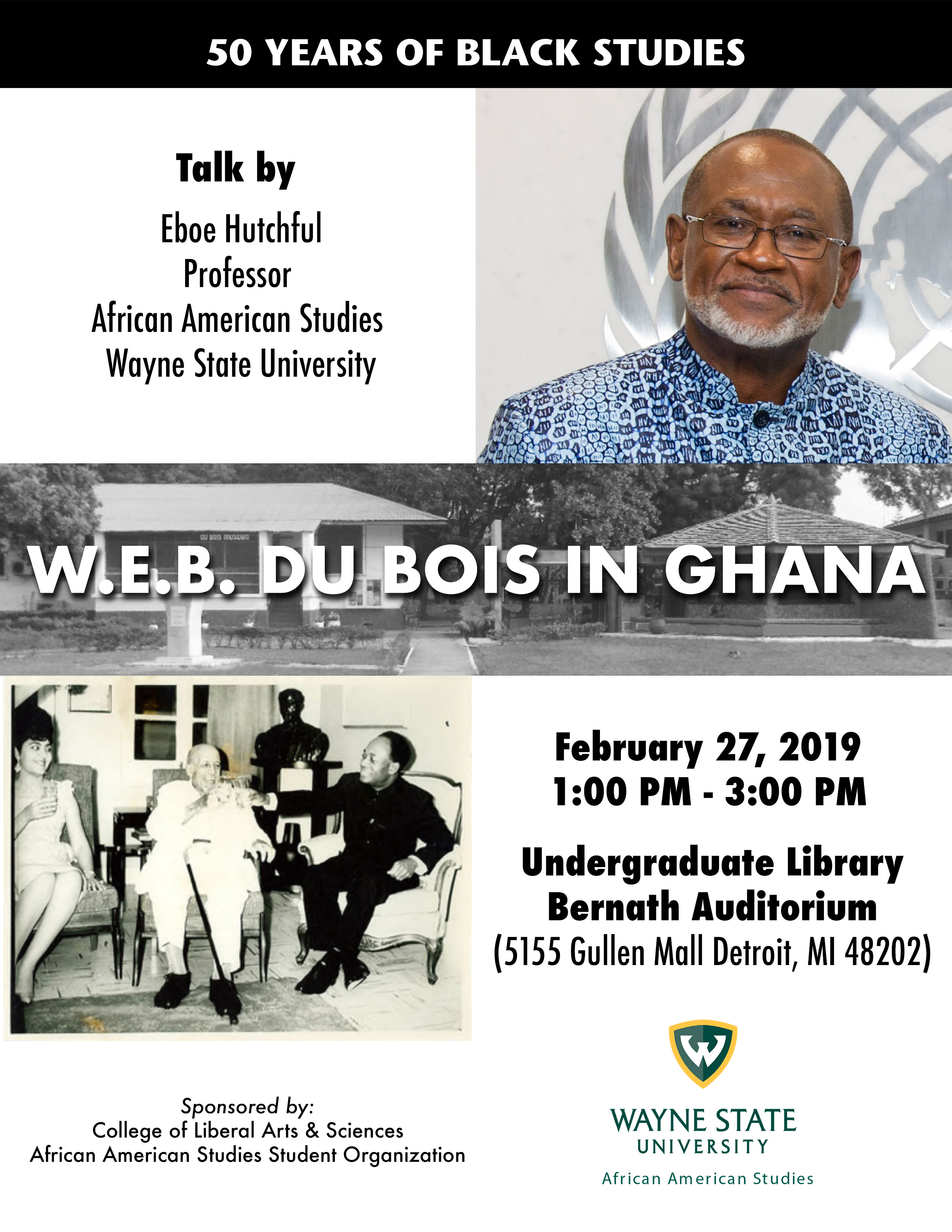W.E.B. Du Bois in Ghana
Wayne State's Department of African American Studies presents "W.E.B. Du Bois in Ghana," a talk by Professor Eboe Hutchful during it's 50 Years of Black Studies lecture series.
At the improbable age of 93, Du Bois landed in Ghana in 1961, officially to take up the editorship of the 'Encyclopedia Africana' at the invitation of President Kwame Nkrumah and would die and be interred in Ghana (as a Ghanaian citizen) a mere two years later (in August 1963).
Du Bois' arrival in Ghana (regarded by many then as the mecca of Pan-Africanism and the Black liberation movement) was timely – even propitious – as the Black liberation struggles on both sides of the Atlantic were cresting, presenting increasingly the prospect of fusing the struggles on the continent and the diaspora under a wider radical Pan-African banner. What was Du Bois' legacy in Ghana in this context?
The presentation will consider two aspects of Du Bois' legacy (or lack thereof). First, Du Bois' own tortuous and convoluted political and ideological journey proved in some respects almost prescient and led him to anticipate – as well as critique – the unfolding direction of the Black liberation struggle as viewed from both Ghana and the United States. Nevertheless, in Ghana, he found the African debate on Pan-African liberation no less fractured than what he had left behind in the United States, eventually with personal repercussions. Even as Pan-Africanism was poised on the verge of historic victory, the concept and movement were undergoing mutations – to put it candidly, a process of 'neocolonialism' – that would challenge Du Bois' own life-long conception of the movement, cast adrift the Diaspora and increasingly foreclose the possibility of genuinely radical Black liberation.
Second, he'll consider the fate of the political project behind the Encyclopedia Africana, which was supposed to 'unite the fragmented Black world' and serve as a tool of anti-racist education. Are Black people in Africa and the Diaspora closer to self-awareness today as a result of Du Bois' work?
Join the Department of African American Studies for this special lecture on Feb. 27, 2019 from 1 to 3 p.m. at the Undergraduate Library's Bernath Auditorium (5155 Gullen Mall, Detroit).
